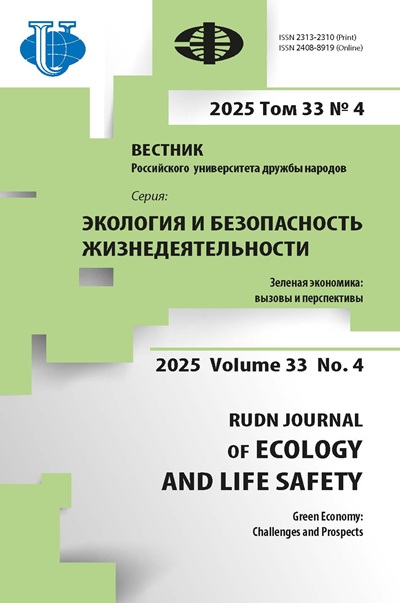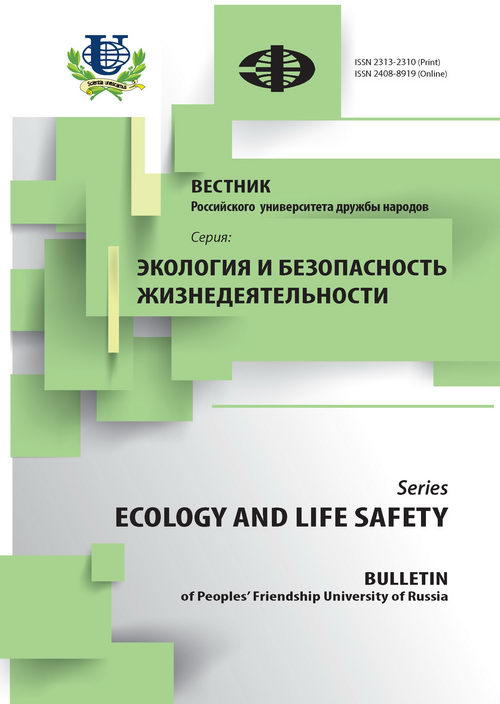Анализ зарубежных исследований опыта человека в среде виртуальной реальности
- Авторы: Кузьмина А.С.1
-
Учреждения:
- Московский государственный университет им. М.В. Ломоносова
- Выпуск: № 2 (2014)
- Страницы: 102-112
- Раздел: Статьи
- URL: https://journals.rudn.ru/ecology/article/view/12403
- ID: 12403
Цитировать
Полный текст
Аннотация
В статье приведен обзор современных зарубежных работ, посвященных исследованию человека в виртуальной реальности в рамках трех основных направлений: влияние опыта виртуальной реальности на личность, применение виртуальной реальности в обучении и в психодиагностике. Проведен анализ психологического содержания виртуальных педагогических агентов, а также возможности виртуальной психодиагностики и моделирования экспериментальных сред. Дана попытка интерпретации результатов некоторых исследований в рамках культурно-деятельностного подхода к личности человека в контексте смысловой работы личности по конструированию опыта человека в виртуальной среде.
Об авторах
Анастасия Сергеевна Кузьмина
Московский государственный университет им. М.В. Ломоносова
Email: 0979695@gmail.com
Факультет психологии
Список литературы
- Магомед-Эминов М.Ш. Трансформация личности. - М., 1998.
- Baylor A., Kim S. The effects of agents’ nonverbal communication on procedural and attitudinal learning outcomes // In H. Prendinger, J. Lester, & M. Ishizuka (Eds.) Intelligent virtual agents. - Berlin: Springer-Verlag, 2008. - pp. 208-214.
- Bente G., Senokozlieva M., Pennig S., Al Issa A., & Fischer O. Deciphering the secret code: A new methodology for the cross-cultural analysis of nonverbal behavior // Behavior Research Methods. - 2008. - 40. - р. 269-277.
- Caplan S., Williams D., Yee N. Problematic Internet use and psychosocial wellbeing among MMO players // Computers in Human Behavior. - 2009. - № 25(6). - р. 1312-1319.
- Chihak B., Plumert J., Ziemer C., Babu S., Grechkin T., Cremer J., Kearney J. Synchronizing self and object movement: How child and adult cyclists intercept moving gaps in a virtual environment // Journal of Experimental Psychology: Human Perception and Performance. - 2010. - Vol. 36(6). - р. 1535-1552.
- Coulson Mark, Barnett Jane, Ferguson Christopher J., Gould Rebecca L. Real feelings for virtual people: Emotional attachments and interpersonal attraction in video games // Psychology of Popular Media Culture. - 2012. - Vol. 1(3). - р. 176-184.
- Domagk S. Do pedagogical agents facilitate learner motivation and learning outcomes? // Journal of Media Psychology. - 2010. - № 22. - р. 84-97.
- Fornells-Ambrojo M., Barker C., Swapp D., Slater M., Antley A., &Freeman D. (2008). Virtual reality and persecutory delusions: Safety аnd feasibility. Schizophrenia Research, 104, 228-236.
- Freeman D. Studying and treating schizophrenia using virtual reality (VR): A new paradigm // Schizophrenia Bulletin. - 2008. - 34. - р. 605-610.
- Gilliath O., McCall C., Shaver P.R., & Blascovich J. What can virtual reality teach us about prosocial tendencies in real and virtual environments? // Media Psychology. - 2008. - № 11. - р. 259-282.
- Jansen P., Schmelter A., Heil M. Spatial knowledge acquisition in younger and elderly adults: A study in a virtual environment // Experimental Psychology. - 2010. - Vol. 57(1). - р. 54-60.
- Launay Jacques, Dean Roger T., Bailes Freya Synchronization can influence trust following virtual interaction // Experimental Psychology. - 2013. - Vol. 60(1). - р. 53-63.
- Longman H., O’Connor E., Obst, P. The effect of social support derived from World of Warcraft on negative psychological symptoms // CyberPsychology & Behavior. - 2009. - № 12. - р. 563-566.
- Métrailler Y., Reijnen E., Kneser C., Opwis K. Scientific problem solving in a virtual laboratory: A comparison between individuals and pairs // Swiss Journal of Psychology/Schweizerische Zeitschrift für Psychologie/Revue Suisse de Psychologie. - 2008. - Vol. 67. - р. 71-83.
- Moreno R., Reislein M., & Ozogul G. (2010). Using virtual peers to guide visual attention during learning. Journal of Media Psychology, 22, 52-60.
- Navarrete D., McDonald M., Mott M., Asher B. Virtual morality: Emotion and action in a simulated three-dimensional «trolley problem» // Emotion. - 2012. - Vol. 12(2). - р. 364-370.
- Pillai J., Schmidt C., Richir S. Achieving Presence through Evoked Reality // Fronties in Psychology. - 2013. - 4:86.
- Plancher G., Gyselinck V., Nicolas S., Piolino P. Age effect on components of episodic memory and feature binding: A virtual reality study // Neuropsychology. - 2010. - Vol. 24(3). - р. 379-390.
- Revonsuo A., Kallio S., Sikka P. What is an altered state of consciousness? // Philos. Psychol. - 2009. - 22. - р. 187-204.
- Schwartzman D., Segal R., Drapeau M. Perceptions of virtual reality among therapists who do not apply this technology in clinical practice // Psychological Services. - 2012. - Vol. 9(3). - р. 310-315.
- Slater M. Place illusion and plausibility illusion can lead to realistic behaviour in immersive virtual environments // Philos. Trans. R. Soc. Lond. B Biol. Sci. - 2009. - 364. - р. 3549-3557.
- Spitzer V., Ackerman M. The Visible Human® at the university of Colorado 15 years later // Virtual Reality. - 2008. - № 12. - р. 191-200.
- Swaab R., Maddux W., Sinaceur M. Early words that work: When and how virtual linguistic mimicry facilitates negotiation outcomes // Journal of Experimental Social Psychology. - 2011. - № 47. - р. 616-621.
- Ward T., Sonneborn M. Creative expression in virtual worlds: Imitation, imagination, and individualized collaboration // Psychology of Aesthetics, Creativity, and the Arts. - 2009. - Vol. 3. - р. 211-221.
- Williams D., Yee N., Caplan S. Who plays, how much, and why? Debunking the stereotypical gamer profile // Journal of Computer-Mediated Communication. - 2008. - № 13(4). - р. 993-1018.
Дополнительные файлы















